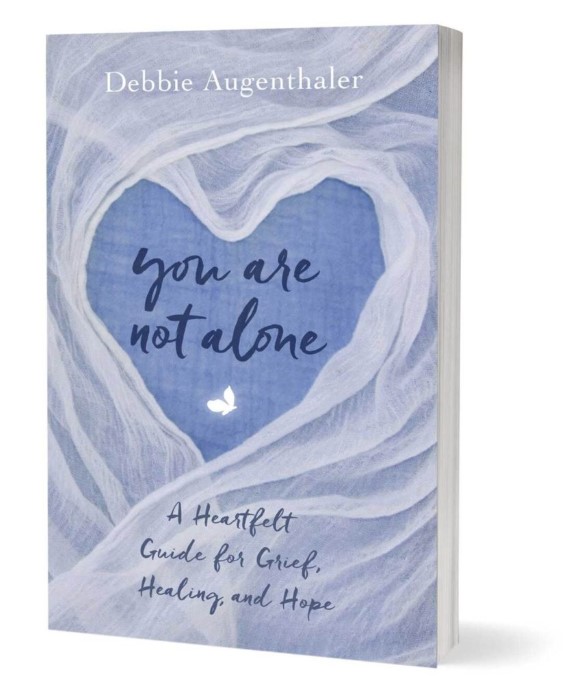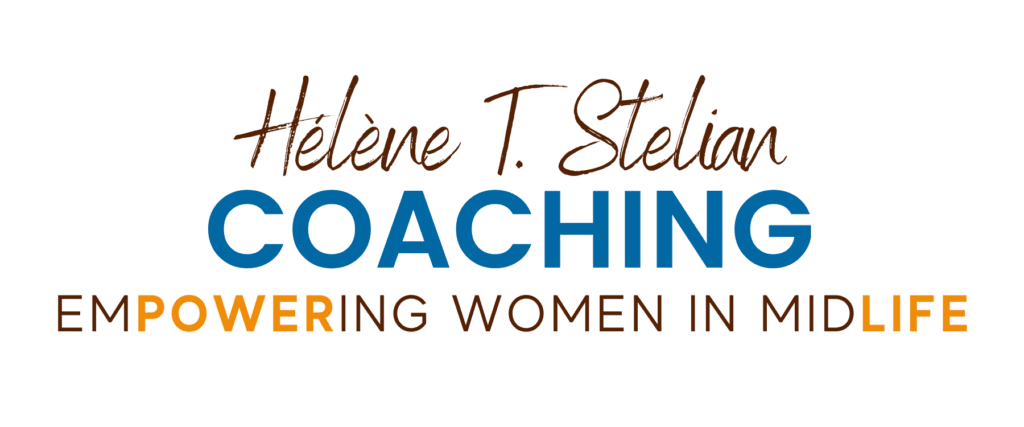 An Expert Interview with Psychotherapist Debbie Augenthaler, Author of You Are Not Alone: A Heartfelt Guide to Grief, Healing, and Hope
An Expert Interview with Psychotherapist Debbie Augenthaler, Author of You Are Not Alone: A Heartfelt Guide to Grief, Healing, and Hope
You suffered the tragic loss of your husband when you were 36 and he was only 45. What prompted you to write about your experience of grief and healing?
Grief is universal, but we’re not born knowing how to cope with it. As a psychotherapist who’s worked with many grievers, I know that when faced with overwhelming grief, many people feel like they are alone in what they’re experiencing and can feel like they’re going crazy.
Helen Keller wrote, “We bereaved are not alone. We belong to the largest company in the world—the company of those who have known suffering.” The death of someone we love shatters us, yet in our grief-phobic society, we don’t often talk about death until our own world breaks apart with the loss of someone we love.
I wrote You Are Not Alone: A Heartfelt Guide to Grief, Healing, and Hopeso I can help more people than I can one-on-one in my therapy practice. This is the book I wish I’d had when I was newly grieving and feeling hopeless. My story, coupled with my professional experience and training, offers healing insights to help guide the reader, and those who want to help, through the labyrinth of loss and healing, along with simple suggestions of things to do that can be helpful along the way. I want to instill hope at a time when there may be none. With the connection of a shared experience, I gently guide the reader through grief to transformation and a new beginning.
For those whose lives are shattered by loss, what hope can you share?
As hard as it might be for them to believe right now, I want them to know: You will heal. You will not only survive, but you CAN thrive and find joy and meaning in your new life. This may not be the life you had before—but it is still your life to live—fully.
Many of the experiences and feelings from my personal story are similar to the ones I’ve heard repeatedly from my clients and many others who are grieving. I share my story because it helps grievers to know they are not alone in how they are feeling. It helps to hear other people’s stories and how they coped and survived. It gives the hope that they will survive too. When my husband died, I couldn’t find a book to speak to the part of me that needed to know someone else had felt this way and had survived. I wanted to read a book by someone who “got” what was happening to me. And I get it. You Are Not Alone is about hope.

What is your best advice for healing from loss?
We all grieve in our own way, in our own time. Grief is not linear, and there is no timetable. Your experience of grief is as unique as you are. Don’t let anyone tell you how you should grieve. Take the time you need.
Let people help you. Surround yourself with those who will listen and hold the space with you.
Beginning to heal and adjust to your new life doesn’t mean having to let go of the person you love. The continuing bond of love does not end.
And I wholeheartedly believe in therapy; it was crucial to my healing. I became a therapist because I wanted to help others like my therapist helped me.
What about advice for those who seek to support someone they care about who has gone through such a loss. Dos and don’ts?
Do say something! A simple “I’m sorry” is fine. Don’t feel the need to “fill in” or grasp for something to say unless it is genuinely sympathetic, compassionate, and supportive. Not knowing what to say, and saying nothing more than “I’m sorry”, or a hug of support, is hugely preferable to silence or awkward words that fluster both you and the griever.
Do more than ask, “What can I do?” Call on your way to the grocery store, asking if there is anything you can pick up. Make a meal and drop it off. Ask if there are any errands that need to be done. If someone has children, offer to take them for a day or an evening to give someone private time to grieve. Don’t stop offering support after the first few days or weeks.
Do let them know you care. Check-in often to say, “I’m thinking of you” or, “How are you doing today?” Every day is different, and some are better than others. If they don’t want to engage, that’s okay. Don’t think one no means your support isn’t appreciated. Grievers want and need your love and support. But, at times, they may not be very responsive to your efforts. So be there for them and let them know it—call, stop by, show you care, but understand, some people need space to grieve privately. Yet knowing someone is there, waiting, with love and acceptance matters more than you know.
Do send a card, letter, or email. Don’t think it doesn’t matter—it means more than you know. A sympathy card is fine, but if you have a special memory to share, it is comforting, special, and very appreciated.
Do listen! We want our loved ones to be remembered and missed and want to talk about the person we love, whose love is still alive, carried in our hearts. Whose energy is still all around us, and always will be. Don’t avoid the loss or the grief. As grievers, we don’t want to be concerned we might cause others discomfort because we still talk about the person we love. All the time. We want to know it’s okay. Because it is!
What resources do you recommend for people suffering from a loss?
The most important resource I recommend is finding a qualified therapist who can help navigate this overwhelming time. Therapy was crucial to my healing, as was a wonderful network of loving and supportive family and friends.
And the reason I wrote this book is because I couldn’t find anything that was really helpful to me when I was newly grieving. For many people it’s difficult to concentrate or read at first, which is why my book is designed the way it is, with short chapters and simple suggestions to help.
There is so much out there on social media now and many groups on Facebook that offer support. I have a monthly newsletter and a Facebook community called Grief to Gratitude that provides daily inspiration and writings.
You can also find organizations, groups, etc. that are targeted towards specific kinds of loss, i.e., loss of a partner, a child, or loss by suicide. The most important thing is to find support—so however you do that, if it’s not from a therapist or family and friends, make sure the authors of books or people running an organization or website have credibility. What helps one person may not help another—so find what feels right for you.
Connect with Debbie Augenthaler:
Email: debbie@debbieaugenthaler.com
Book: You Are Not Alone: A Heartfelt Guide to Grief, Healing, and Hope
Website: www.debbieaugenthaler.com
Facebook: Grief to Gratitude
Instagram: grief_to_gratitude
Debbie Augenthaler is an author and psychotherapist in private practice in New York City, where she has specialized in trauma, grief, and loss. Prior to becoming a therapist, she had a successful career in the financial industry for more than twenty years. Debbie has a Master’s Degree in Counseling for Mental Health and Wellness from New York University and completed a two year post-graduate Advanced Trauma Studies program at the Institute of Contemporary Psychotherapy. In 2012 she received the NYU Steinhardt Award for Outstanding Clinical Service.
Her book, You Are Not Alone: A Heartfelt Guide to Grief, Healing, and Hope combines her personal story of devastating loss with practical insights and simple suggestions for healing. It will be published in May of 2018. To learn more, or to book Debbie for speaking engagements and articles, please visit her website and join her Facebook community, Grief to Gratitude.







Do help them join a new group. Do help them do in their own time. Do call and offer to take them to a sports event or concert/theatre
Do offer to take them out for a coffee.
Do help them to get out socially
Do not ask “What happened”. They may tell you in their own time.
Don’t say “Give it time”
Don’t say “I know what your going through”